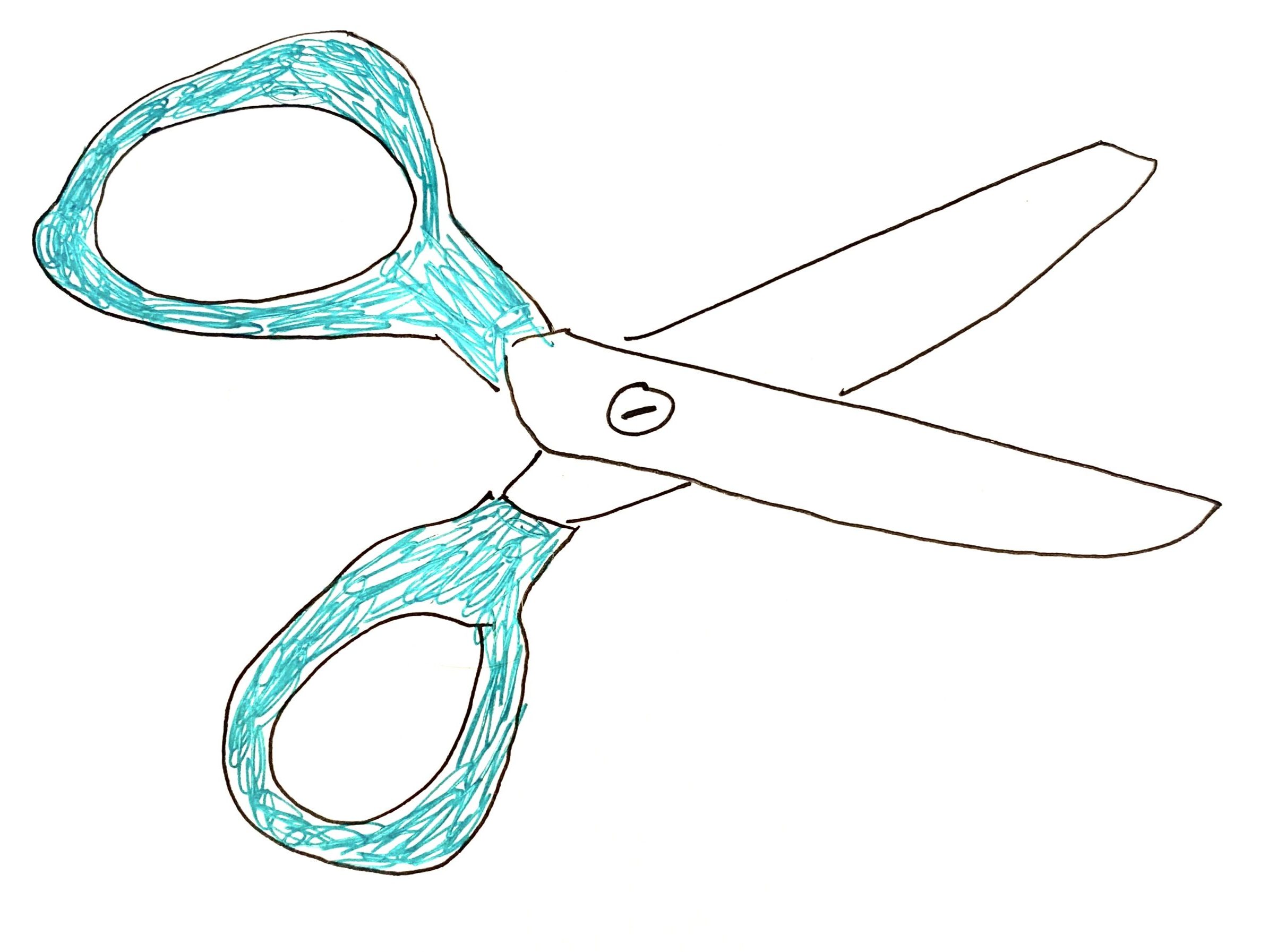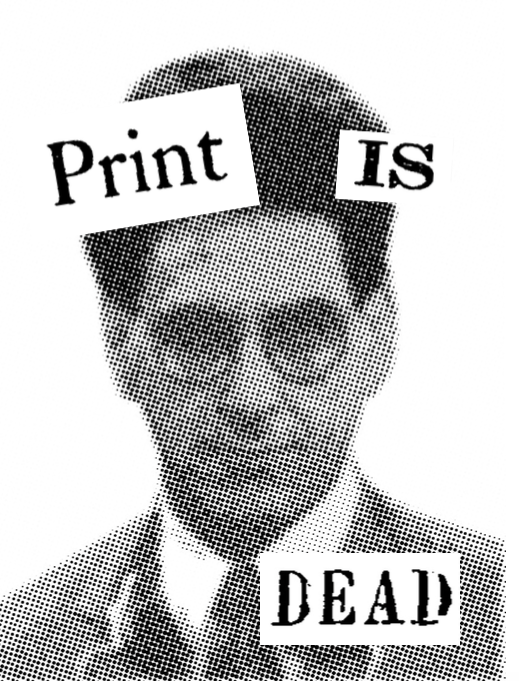
Or is it? My scholarly interests are concerned with questions like this one, where old media becomes reborn or remediated in ways that reveal important power relations between writers, technology, and the political economies in which they work and live. This research emerges from three important turns in composition studies — the multimodal, the public, and the (new) material — asking to what extent a writer’s relationship with media and materials reveal certain desires and capacities of publics and counterpublics. I’m particularly interested in histories of self-publishing and how those histories can be used to better understand our current, digital, neoliberal moment.
In development
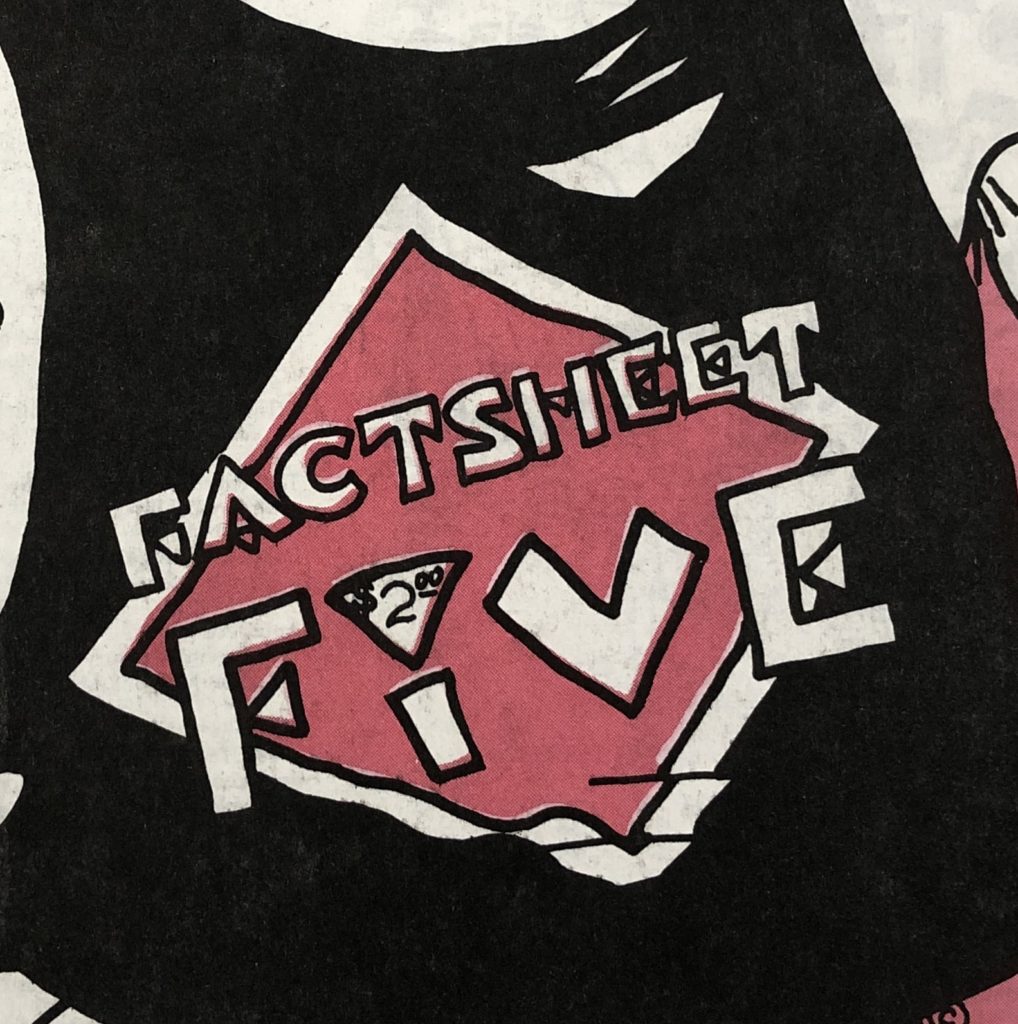
Factsheet Five Archive Project. f5archive.org. This ongoing, multi-site project drafts a history of the influential “network zine,” Factsheet Five, which existed from 1982-1998. I see several potential projects developing from this work, both in terms of zine history and the historiographical methodologies that are equally archival and ethnographic.
“Doing It Ourselves: Self-Publishing Through Co-authored Projects” In development. This article, co-authored with three Writing Arts majors at Rowan University, proposes how a DIY ethic can inform student-developed projects in publishing and writing for the public.
“From Riot Grrrl to Broken Pencil: A Brief History of Feminist Zine Design” for Feminist Design Rhetorics edited by Kristin Ravel, Rachael Sullivan, and Kristin Prins (chapter proposal accepted). This chapter traces the how design practices have positioned feminist zines from a primary concern for representation of women’s bodies to tactics for intersectional assemblage.
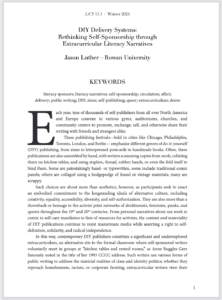
Recently published
“DIY Delivery Systems: Rethinking Self-Sponsorship Through Extracurricular Literacy Narratives“ in Literacy in Composition Studies (Feb 2024). This article reconsiders the role of the “self-sponsored” writer in a neoliberal, post-truth context. It considers how contemporary do-it-yourself publishers have not only attempted to negotiate a public sphere which has linked “self-sponsored” to “entrepreneurial,” but also negotiate a digital environment that links authorial desire to communicative capitalism.
“Making the Scene: The Rhetoric of DIY Composition” with Kristi Prins and Frank Farmer for enculturation (April 2023). This article presents a theory of DIY composition that builds from rhetoric and writing studies’ interest in making and maker culture.
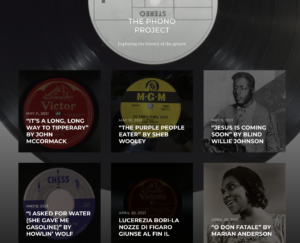
“From Cylinders to WordPress: Using Digital Sound Archives for Short-Form Radio Programs” in Amplifying Soundwriting: Integrating Sound into Rhetoric and Writing, edited by Kyle D. Stedman, Courtney S. Danforth, & Michael J. Faris, WAC Clearinghouse, 2022. This chapter shares and reflects on a four-week assignment called The Phono Project, which asks students to produce a 90-second recording based on a single, digitized phono track from the early period of recorded sound, usually dating from the late 19th or early 20th century.
“Entrepreneurship” for Keywords in Design Thinking: A Lexical Primer for Technical Communicators and Designers, edited by Jason Tham, WAC Clearinghouse, 2022. This chapter outlines the significance of entrepreneurship and entrepreneurial thinking for TCP, especially in terms of user-centered design.
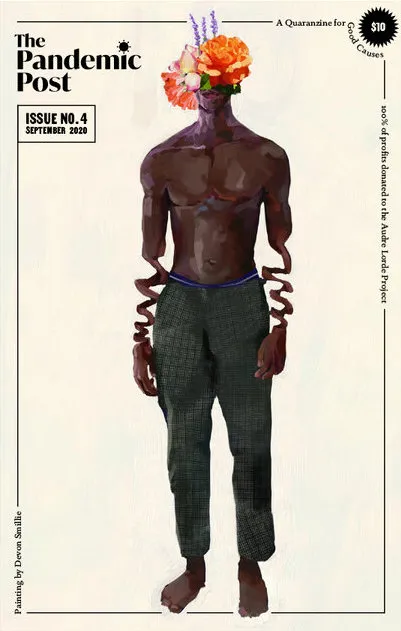
“More Than Paper Islands: The Pandemic Circuitry of Quaranzines,” published in Reflections (2022). In this article I examine how quaranzines, DIY publications that were made and circulated under protocols of social distancing, offer an opportunity to consider the capacity of certain forms and cultures as they assemble or disassemble rapidly and as conditions change.
“Post/humanizing with Quaranzines,” published for the Digital Rhetoric Collaborative’s blog carnival on COVID-19 (2021). I theorize the proliferation of quaranzines via Casey Boyle’s concept of rhetoric as posthuman practice.
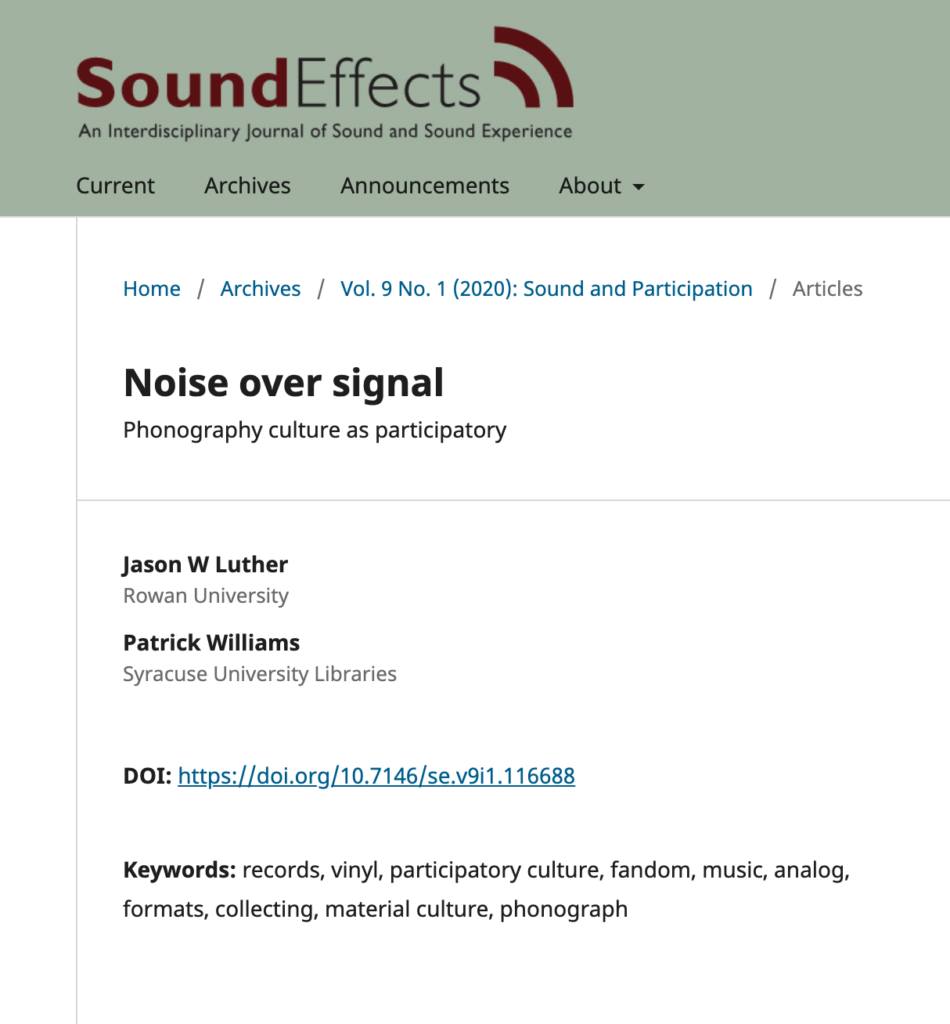
“Noise over Signal: Phonography Culture as Participatory” with Patrick Williams, published in SoundEffects (2020). In this article we explore how the LP vinyl record has produced social arrangements that excavate older listening practices but do so in ways that have been affected by the mediascape more generally. We offer the concept of phonography culture: a term that emphasizes the social practices of those who not only curate and collect vinyl records but communicate through them in participatory activities including listening parties, vinyl nights at local bars, Facebook groups, and sites of e-commerce.
Older stuff
Special Issue of Community Literacy Journal: The Past, Present, and Future of Self-publishing. In Fall 2018 I co-edited a special issue of CLJ on self-publishing with Steve Parks (Syracuse University) and Frank Farmer (University of Kansas) focused on the histories, theories, and practices of self-publishing cultures. Authors focused on the ways self-publishing functions in the present as well as the past, especially how certain cases affect the future of community literacy.
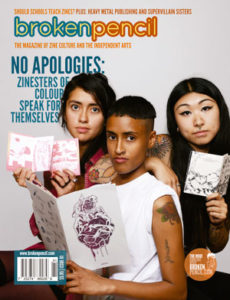
Dissertation: DIY Delivery Systems: The Extracurriculum in the Age of Neoliberalism. In my dissertation I address the public and political dimensions of various multimodal processes by considering how both new media and our current political economy have affected the authorial desires and motivations of do-it-yourself (DIY) publishers. By DIY publishers I mean those who continue to use print in the 21st century as a mean for political expression, producing and circulating self-made texts (like zines, comics, little magazines, etc.) in an age where digital-only tools, such as blogs and social media, are passed off as compulsory platforms for public voice. The data for my study comes from more than 70 issues of Broken Pencil, a small, Toronto-based magazine that has covered DIY publishing and the independent arts since it was founded 1995 — the same year the web became commercialized. Thus, I use new materialist methodologies to suggest that while the web has helped DIY publishers expand their networks, it has been at the expense of a different sort of politics than those cultivated by radical, print-only self-publishers throughout the 20th century. Ultimately, this study suggests that in order to study and teach multimodal public writing, we must develop a rich understanding of the numerous intermediaries — the various circuits of production, distributions, exchange, and consumption — that shape both authorship and readership.
